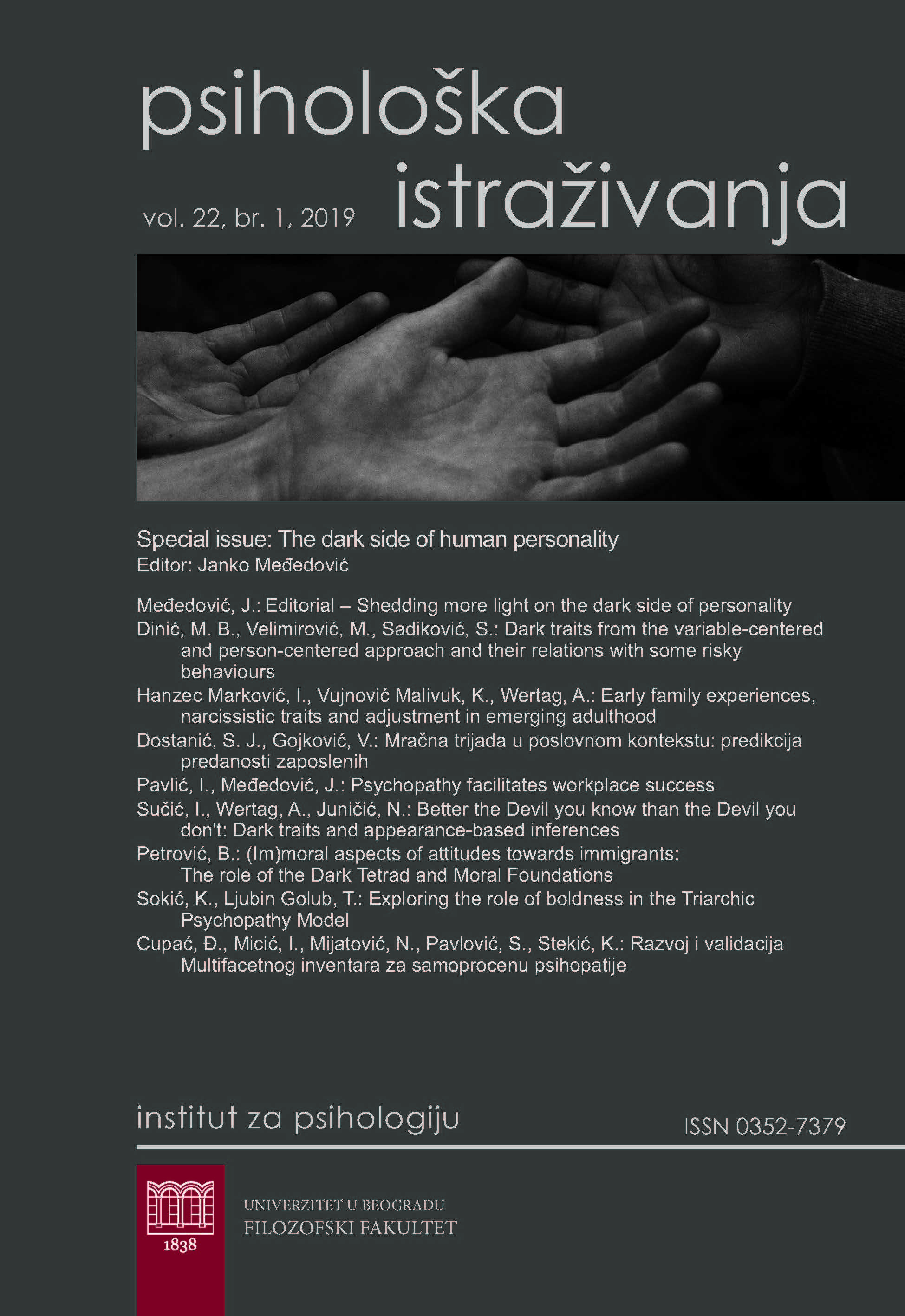Psychopathy facilitates workplace success
Abstract
Psychopathy may be related to some adaptive outcomes in the workplace environment. This phenomenon is called corporate psychopathy and it is based on the assumption that a corporate environment positively selects for psychopathic features, especially in top management. We tested the hypothesis of positive relations between psychopathy traits and workplace success indicators in a sample of 212 working adults (69% females; Mage=33.55[SD=7.38]). We measured psychopathy using the Psychopathy Personality Traits Scale (analyses were performed on two empirically extracted factors from the items of this scale, labeled as Ruthless manipulation and Lack of empathy). We explored workplace success using four variables: 1) managerial vs. operational position in the company; 2) variation in monthly salary; 3) variation in the received bonus for the previous year's performance, and 4) self-reported success in performing job tasks. Correlation and regression analyses provided very similar results: Ruthless manipulation was more pronounced in individuals who were in managerial positions, and those who received a bonus for their performance; Lack of empathy was positively associated with bonus and self-reported performance success. Ruthless manipulation had positive zero-order correlation with monthly salary as well, but it did not have an independent contribution to the prediction of this criterion measure. The study results were congruent with the hypotheses: psychopathy was positively associated to various indicators of success in a workplace context. The findings can be interpreted using the concepts of corporate psychopathy and successful psychopathy in general.
Authors retain the copyright of the published papers and grant to the publisher the nonexclusive right to publish the article, to be cited as its original publisher in case of re-use, and to distribute it in all forms and media. The published articles will be distributed under the Creative Commons Attribution ShareAlike 4.0 International license (CC BY-SA). It is allowed to copy and redistribute the material in any medium or format, and remix, transform and build upon it for any purpose, even commercially, as long as appropriate credit is given to the original
author(s), a link to the license is provided, it is indicated if changes were made and the new work is distributed under the same license as the original. Authors are permitted to deposit the author’s publisher’s version (PDF) of their work in an institutional repository, subject-based repository, author’s personal website (including social networking sites, such as ResearchGate, Academia.edu, etc.), and/or departmental website at any time after publication, with an acknowledgment of its initial publication in this journal.

